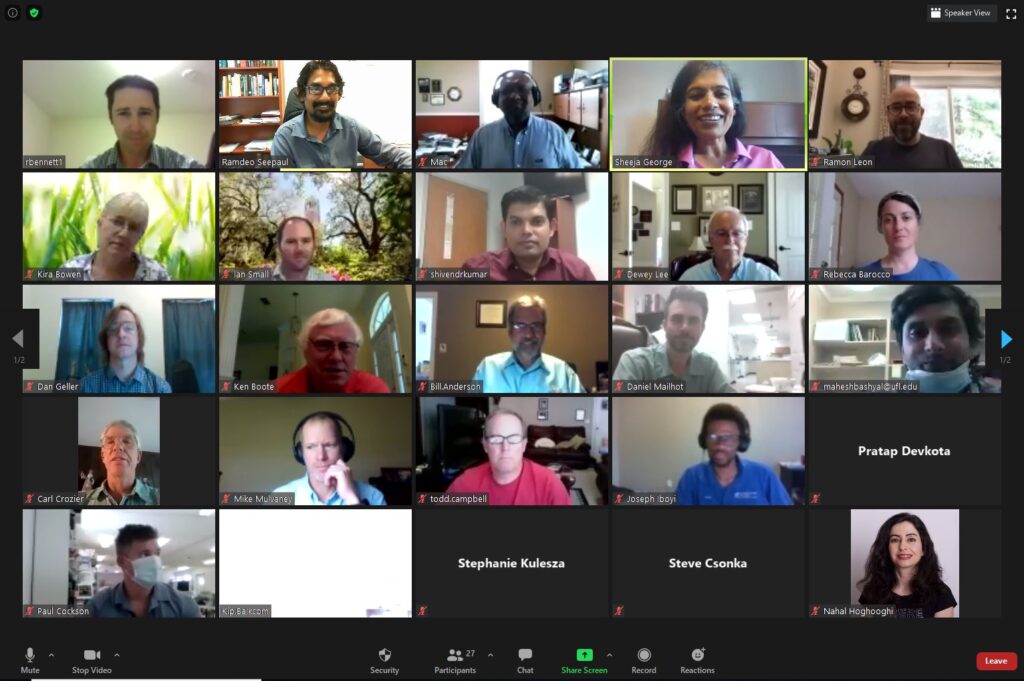
Message from the Executive Committee
All SPARC institutions reported a successful carinata harvest working with essential farm personnel and adhering to state, county and institutional guidelines during COVID-19. That is a great accomplishment and one to remember for sure. Our industry partners had their own share of challenges during the pandemic and are only now gradually getting out of the situation. It is certainly not the last time that disruptions like these will occur, throwing the most prepared into an uncertain frenzy. The question is, how quickly and seamlessly can we adapt, change course, and begin to coast, before, of course, the next new thing hits us.
There usually seems to be very little we can do to fully prepare for the unexpected because “unexpected” can come in endless combinations of size and form. Reducing the negative impact of such uncertainties is what SPARC aims to do by developing a toolbox to mitigate risk for continued success. To know what needs to go into that toolbox means to understand who the users and the beneficiaries are, and what they really need. That was the rationale behind SPARC engaging in a deliberate activity to take a closer look at the breadth of its stakeholders and how we have done so far in engaging with them. The SPARC social science team initiated this exercise using a very systematic approach to give the entire group a glimpse of the range of influencers of the SPARC mission. Stepping into year four of our mission, we intend to take this initial snapshot and develop a plan to prioritize engagement so that we can continue to build and refine tools in the SPARC toolbox.
Finally, as they rightly say, “…It’s hard to hold good people back….”, sure enough, SPARC was not able to hold Ben Christ back. As he moves on, we continue to build on what he laid the foundation for in the realm of SPARC stakeholder engagement and social science investigation. We wish him the very best!
SPARC Stories
The Nuseed Carinata R&D and Commercial Program
Nuseed, a wholly owned subsidiary of Nufarm Limited, recently expanded its global portfolio to include Nuseed Carinata, a sustainable oilseed feedstock for low carbon fuel and high protein meal. Carinata was added to Nuseed’s global canola, sorghum and sunflower input and output plant-traits research, development and commercial sales programs.
Nuseed is delivering VALUE BEYOND YIELD® by developing input traits for top agronomic performance of its various platforms, and going beyond yield to commercialize plant output traits with new value and market opportunities. Nuseed’s Monola® and Omega-3 Canola, Onyx™ Sunflowers, Wholis™ and BMR Sorghum, and Carinata Renewable Fuel programs are all examples of proprietary crops developed for specific end-uses and supplied by Nuseed Value Chains built through industry collaboration.
Over 250 Nuseed employees work across 11 global locations and two world-class Nuseed Innovation Centers (located in Horsham, Australia and West Sacramento, California). Established in Australia in 2006, Nuseed has grown to offer industry leading germplasm, advanced molecular capabilities, regional R&D and commercial trials with dedicated teams in Australia, Europe, North and South America, and sales in more than 30 countries.
Nuseed Carinata program development
The breeding and R&D platform began in 2012 by the developer Agrisoma Biosciences, who quickly expanded testing from Western Canada and the Northern Great Plains of the U.S. to include the Southeast U.S. and Uruguay as a winter crop, and regional testing in France and Australia. Work on the regulatory front includes the major milestone of receiving certification from the Roundtable on Sustainable Biomaterials (RSB), demonstrating Nuseed Carinata is a best in class feedstock that both reduces greenhouse gas emissions and is produced in a sustainable way. This certification paves the way for expanding business development opportunities as potential end users see the value in its fit as a sustainable biofuel feedstock, and also as a source of high protein non-GM meal.
Nuseed’s global seeds business provides the reach, infrastructure and connection to local growers to fully commercialize the production of Nuseed Carinata, and is an excellent fit to the company’s commitment to adding value beyond yield. Nuseed Group Executive, Brent Zacharias, said “Nuseed Carinata adds another high potential oilseed to our portfolio with unique output traits and allows us to leverage our global seed development, regulatory, production, logistics and commercial capabilities.”
Nuseed plans to ramp up oil production to around 200,000 metric tonnes over the next few years with a closed-loop contracting structure for farmers in major soybean growing regions, initially in South America.
The Nuseed Carinata program provides certified best in class greenhouse gas (GHG) reduction to the biofuels industry, and is an ideal cover crop that improves the soil through carbon sequestration; all without competing with food production or requiring additional farmland.
Product development efforts
In the near term, the growth of the Nuseed Carinata commercial program is focused on winter rotations, particularly in Argentina and Uruguay. The following is a summary of areas in which work is actively being done:
1. Technology pieces – Two high priorities in Nuseed’s current efforts include a) Hybrid program establishment – in collaboration with Mustard 21 and AAFC, the Ogura hybrid system has been introgressed into Nuseed Carinata, with promising “first generation” hybrids. Nuseed and AAFC are jointly working on improved Restorer lines, as well as continued female line development and test hybrid evaluation; and b) Herbicide tolerance development, particularly emphasizing Imidazolinone tolerance, and also an enhanced dicamba tolerant set of germplasm has been developed.
2. Traits for growers – For South America and the Southern U.S., due to the fact that Nuseed Carinata is cultivated in a winter environment across a fairly broad geography, identifying lines with higher levels of resilience to frost, particularly during the vegetative stages of plant development, is a priority. Due to winter rotation considerations, development of earlier maturing varieties is also an important objective. In addition, because of the high branching and biomass production in Nuseed Carinata, harvestability traits such as lodging resistance are an important consideration for lines advancing in the program.
3. Traits for end users – Nuseed continues to emphasize high seed oil content (the current OP variety, Avanza 641, averages 46 – 47% in a winter environment), and is working on achieving similar levels in new hybrid varieties. In addition, maintaining high biomass varieties with good carbon sequestering capabilities is an important consideration in Nuseed’s germplasm evaluation efforts.
4. Geographies in which Carinata is being evaluated – In 2020, Nuseed has a number of trial sites in both Uruguay and Argentina, with a base of operations located in Venado Tuerto, Santa Fe Province, Argentina. Beyond this, thanks to the SPARC consortium and funding, the program benefits from the numerous trials conducted in winter rotations in the Southeast U.S., as this geography possesses similarities and synergies with the South America program. Nuseed also has various size test plots being evaluated in Southern France (sown in June or early July) and Australia (sown in April or May). In Canada, there is a research farm located 70 km South of the Nuseed Carinata and Canola R&D facility based in Saskatoon, on which pre-basic seed increase activities are conducted.
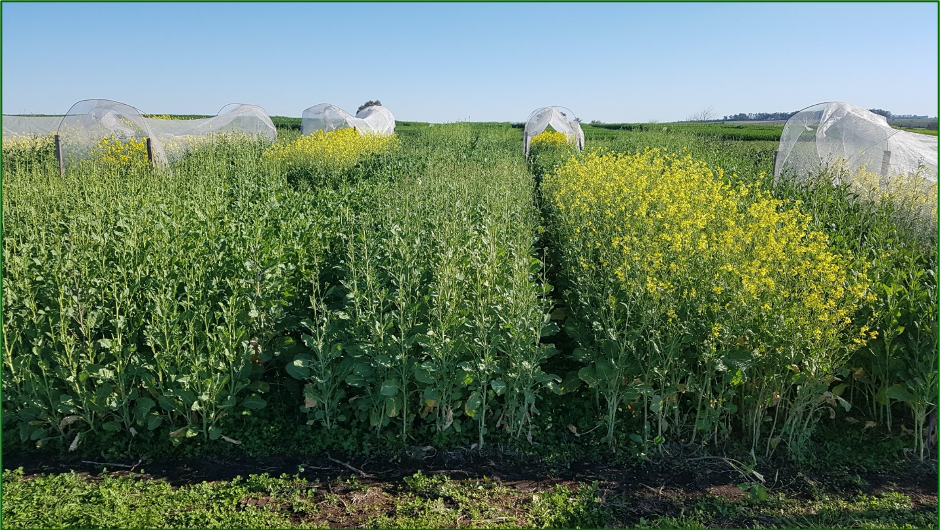
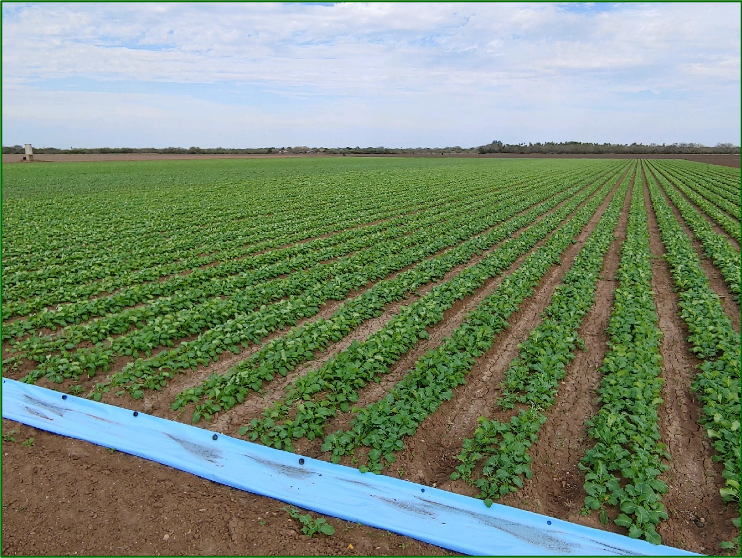
SPARC Member Spotlight
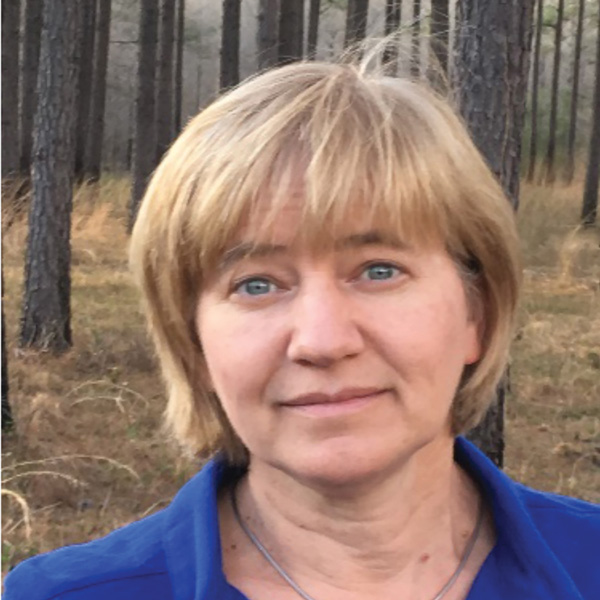
Dr. Kira L. Bowen is a Professor of Plant Pathology at Auburn University in Alabama. Her passion for plants led to her BS in Plant Sciences from Penn State, where she was introduced to Plant Pathology. Following receipt of a MS from the University of Minnesota, and a Ph.D. from the University of Illinois, Kira did her postdoctoral training with USDA-ARS at the University of North Carolina. Her focus through graduate school and later as a professor has been on plant disease epidemiology. Kira’s professional interests have addressed how weather impacts plant disease development, how plant diseases affect crop yields, and sustainable disease management practices. She brings these skills to SPARC where her primary research deals with determining the optimum temperature conditions for spore production by Sclerotinia sclerotiorum, which causes stem rot in carinata. She has worked on disease problems of several economically important crops in the region including peanut, wheat, corn, cotton, and several ornamental problems. Some of the plant diseases she has worked with include barley yellow dwarf, southern stem rot, and target spot of cotton. She has also worked on aflatoxin problems in peanuts and corn. Kira’s comfort with applied plant pathology issues makes her a valuable resource to SPARC as we learn to successfully introduce a relatively new crop in the region.
“Dr. B” has been teaching “General Plant Pathology,” an introductory course for any undergraduate student, for 31 years. In addition, she teaches a graduate level plant disease epidemiology course and plant disease diagnosis. Kira constantly refines her teaching content to keep it current and relevant by incorporating what she learns through her research into her courses. Interestingly she has been able to relate plant problems to human diseases and continues to use that analogy to teach “Plant Disease Epidemiology” for effective and engaging instruction. Kira is an avid writer and has contributed greatly to the discipline of plant disease epidemiology through several hundred peer reviewed articles, book chapters, and other popular articles.
Kira has long been active with her professional society, the American Phytopathological Society (APS). She has served on several committees in APS, has served as Editor-in Chief of Plant Disease, and recently ended her term as President of APS. Further, Kira has served on a number of national and regional grant panels and ARS project reviews. She has and continues to collaborate across institutions on several state, regional, and federal research initiatives. She is currently serving as an Associate Editor for Peanut Science. Closer home at Auburn University, she has served as Chair of the Department of Plant Pathology and Research Coordinator at the College of Agriculture, both important leadership positions requiring critical coordination, management, and conflict resolution skills. In addition she has served on numerous committees at the University and college level.
Kira and her husband, John, their two dogs (a Brittany and a rescued mix breed) and some chickens live near the center of Lee County, AL. Their discovery of native, deciduous azaleas led to them starting a small business selling plants to retailers after they learnt to develop propagation techniques for several species.
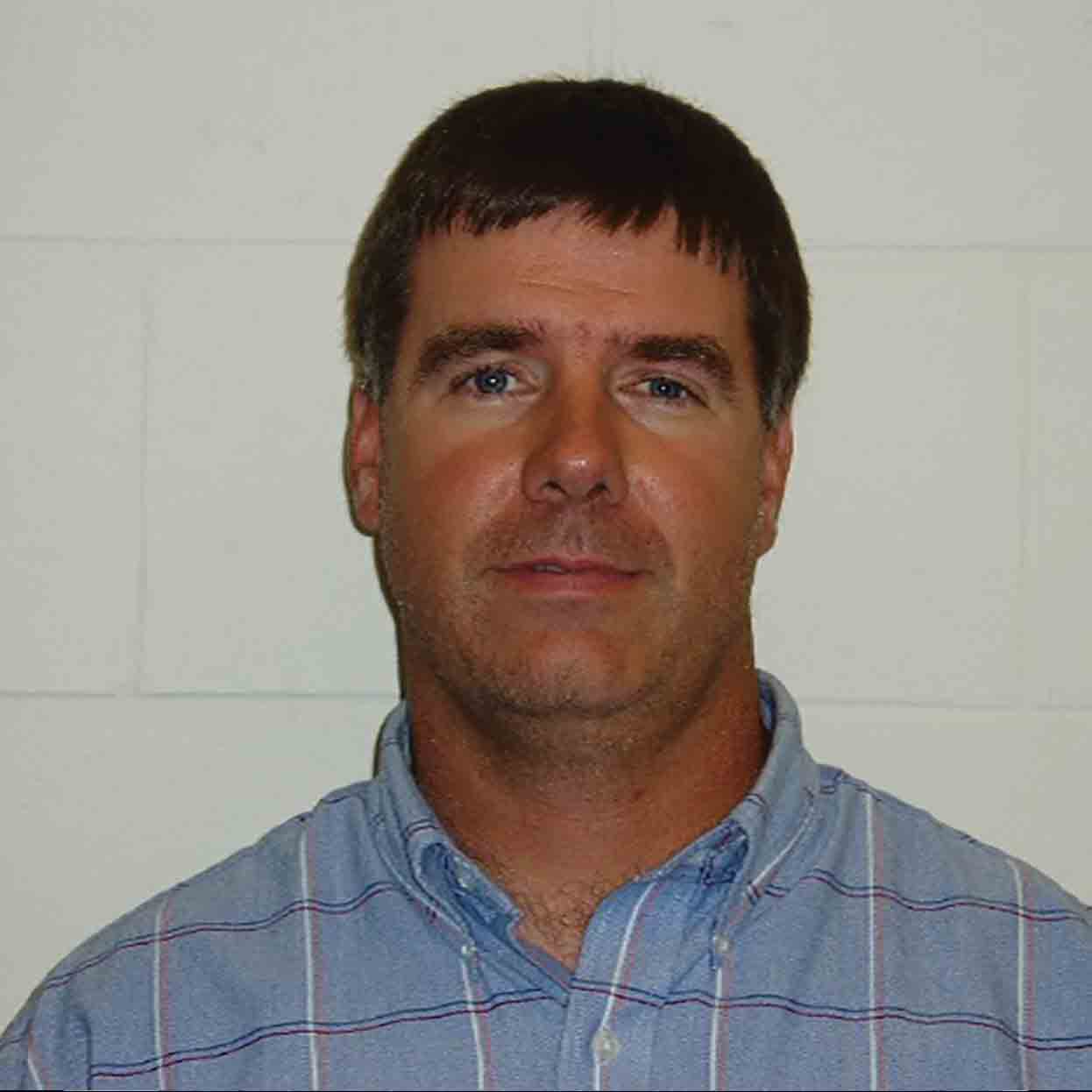
Kip Balkcom is a Research Agronomist and Lead Scientist with USDA-ARS at the National Soil Dynamics Laboratory located in Auburn, Alabama. He graduated with a B.S. (1994) in Agronomy and Soils and a M.S. (1997) in Soil Fertility/Chemistry both from Auburn University and a Ph.D. (2000) in Soil Fertility from Iowa State University. His research interests lie in the area of understanding complex interactions between crop productivity and crop management decisions especially in the context of conservation tillage, crop diversity, cropping intensity, use of cover crops and so on.
In SPARC he led several trials looking at the effect of various types of tillage on carinata performance and yield. He has contributed over the past 20 years to a variety of agronomic areas including use of animal and municipal byproducts, efficient utilization of legume crop residues, irrigation, crop row patterns, alleviation of soil compaction, and determining crop nutrient response in high residue conservation tillage systems. Dr. Balkcom’s research has resulted in 71 peer-reviewed journal articles, 7 invited book chapters, online invited publication and trade journal publications, 64 conference proceedings, 32 extension/research reports, and over 100 abstracts.
As an expert on conservation systems he is the obvious choice for consultant for USDA and university researchers, extension personnel, growers, industry and other stakeholders. He has led several outreach events, workshops and seminars providing valuable information on the latest research breakthroughs and findings in cropping systems management, and continues to receive several invitations to provide consultation on converting from traditional tillage systems to conservation systems, management considerations for conservation tillage and cover crops, equipment modifications, and benefits of these systems.
Dr. Balkcom provides his valuable expertise relating to cover crops and conservation systems to graduate students by serving on their committees. More recently he was awarded over $1 million in commodity grant funds due to his applied program that directly benefits growers. His expertise being unique and very relevant to regional cropping systems makes him a much sought after collaborator on several multi-institutional and interdisciplinary grant efforts. Part of Dr. Balkcom’s research and outreach career also involved international outreach some of which include a visit to Brazil initiated by EMBRAPA to present information on effects of conservation systems on soil properties. He has also provided information sessions and workshops to international visitors from Albania, Brazil, China, Cuba, Egypt, Germany, Honduras, and India.
SPARC Student Spotlight

Kazi Ullah is a PhD student at the University of Georgia’s School of Forestry under the guidance of Dr. Puneet Dwivedi. He has a BS and MS in Urban and Regional Planning from Bangladesh and a second Masters degrees in GIS from Lund University in Sweden. Apart from his formal educational experiences Kazi has had several consulting roles with the International Centre for Integrated Mountain Development where he was involved in a forest ecosystem vulnerability assessment project and a drought monitoring assessment project, the BRAC Institute of Governance and Development, Institute of Water Modeling, and others
Kazi’s expertise and training are in the area of spatial modeling, multi-criteria decision making, mixed methods, life cycle analysis, mathematical programming and optimization and other related areas. His research areas primarily focus on using his modeling skills in the areas of urban planning and poverty, and tourism. More recently he has been using his expertise in the context of climate change mitigation, supply chain analysis, natural resources management and GIS and remote sensing. Previously, he was a Senior Research Associate of BRAC Institute of Governance and Development (BIGD), BRAC University. His work at BIGD were published in the Transaction in GIS and the Journal of Poverty.
In SPARC, Kazi works primarily with the System Metrics team with some overlap with the Supply Chain Management team looking at aspects of developing a sustainable supply chain for sustainable aviation fuel and coproducts from carinata in the Southeast US. In his research, he is looking for an appropriate agent-based farm-scale model to understand farmers’ land allocation decisions in the context of carinata adoption, designing an integrated economic and life cycle analysis framework, and identifying optimum locations for infrastructure development within the framework of economic and environmental viability.
Originally from Bangladesh, Kazi and his wife started their married life in Nepal. They were always mesmerized with the natural beauty of Nepal. They have a beautiful son, Manaslu (mountain of the spirit), who they named after one of the highest mountains in the world in the Nepalese section of the mighty Himalayas. Kazi enjoys watching cricket, loves playing chess and cards, not for the competition, but purely for leisure and enjoyment.
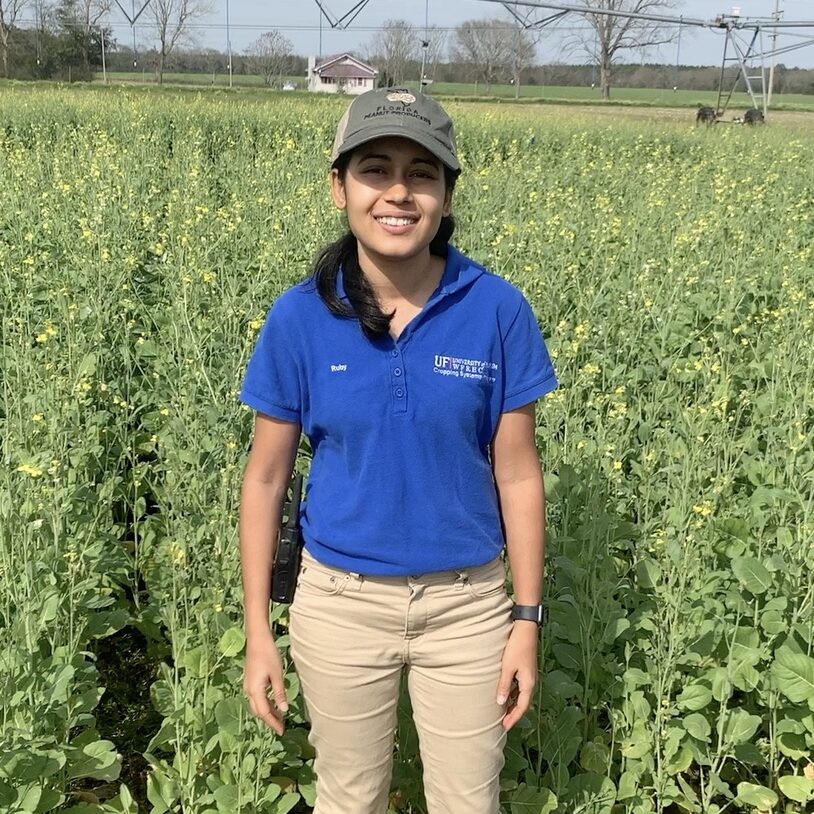
Ruby Tiwari is a graduate student pursuing her Master’s degree at the University of Florida/Institute of Food and Agriculture Sciences-West Florida Research and Education Center, Jay in the Agronomy department with Dr. Pratap Devkota and co-advised by Dr. Ramon Leon (NC State University). She has a BS in Agriculture from the Institute of Agriculture and Animal Sciences, Tribhuvan University, Nepal.
Prior to starting her graduate school research, Ruby worked as an agriculture instructor at a secondary school located in a remote area of Nepal. There she had the opportunity to deliver lectures on horticulture (pomology), aquaculture, and soil sciences to close to 100 students. She also refined course content as needed and developed labs for the students. Ruby is active in the community and among other activities, has volunteered at the Farm to City event at Milton, FL as part of an outreach event.
In SPARC, she is looking at weed ecology and management aspects within carinata cropping systems. She is also performing controlled environment experiments to understand the effect of winter carinata on summer annual weed seed banks. Broadly speaking, her research aims to understand the overall rotational fit of carinata in the Southeastern context. She is attempting to do this by studying both the Eventsagronomic and ecological characteristics of important weeds and then identifying ways to improve weed management stability over time for carinata in rotation with important summer crops in the region.
Ruby has over a dozen abstracts to her credit so far as a graduate student. She recently took home the first place award for video presentation during the 3rd SPARC Annual Student Competition. She also has several other awards and scholarships to her credit. Ruby intends to get into a teaching and research career after graduating. In her free time, she loves to travel and explore new places. She also loves to cook her favorite Nepali dishes when she is not busy with her research.
Events
Tri-State Cover Crop stakeholder training Webinar-September 21,2020
